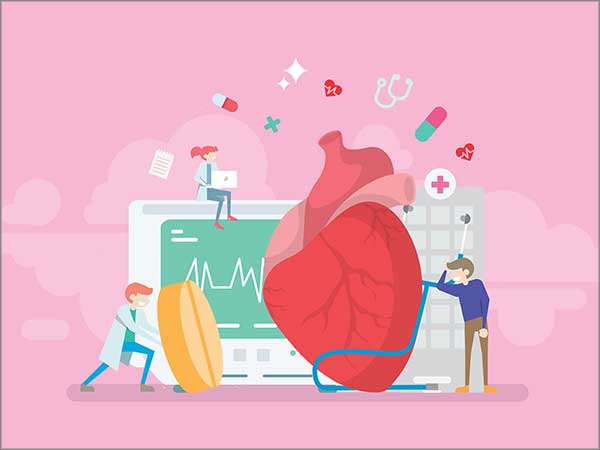Feel Free to call:+91 9345 7369 40
- Home
- About us
- Our Founder
- Our Trustees
- A Bouquet of knowledge
- Oncology decoded
- Awareness Corner
- FAQs
- Blogs
- Testimonials
- Gallery
- Awards and Certification
- Pearl Health Institute
- Contact Us
Cardiology checkups: Prevention is the only key
Previously, a heart attack was considered only as an old man's disease, but now this is a fear factor among the youngsters also. People nowadays, even at the age of thirty come under the territory of cardiological diseases. The most dreadful factor is that youth is still ignoring the basic signs of heart diseases.

Importance of Cardiology check-ups
Experts opine that people irrespective of their age must undergo the basic Cardiac
check-ups regularly. If you are experiencing chest pain, breathlessness or fatigue, it may be a primary warning for you.
While it's a scary reality, having check-ups on accurate times can save our lives.
Your doctors will get a picture of your overall health. If any variation is noticed, proper steps can be taken.
When do you need cardiology check-ups
Important Cardiology Checkups
Angiography
Angiography or arteriography is a medical imaging test using X-rays to see our body's blood vessels. The X-rays provided by an angiography are called angiograms. This test is used to study narrow, blocked, enlarged, or malformed arteries or veins in many parts of your body, including the brain, heart, abdomen, and legs.
Blood pressure monitoring
This is the process of measuring blood pressure and heart rate at regular intervals using a device called a sphygmomanometer.
Blood tests
Blood tests help to diagnose a condition or to monitor someone who has already been diagnosed with a heart problem. Blood tests can also be done to monitor the effects of medication as well as the levels of lipids in the blood.
Echocardiogram (Echo) Test
This process monitors the contraction of the heart. This test uses sound waves to study the functions of the heart and the valves.
Electrocardiograph(ECG) Test
This is one of the most common cardiac tests. An ECG machine records our heart rhythms on to a paper through sticky electrodes which are placed on your chest, arms and legs. These recordings show the damaged heart muscles or deficiency in oxygen levels.
Electrophysiological studies
This method is to analyze the electrical activity of our heart. Normally people who
experience abnormal heartbeats or pulsation may need this test. This is similar
to angiography.
Myocardial Perfusion scans
The test is to examine how blood flows to the heart. A dye is injected to highlight
the blood vessels in your heart. A large machine then creates pictures of your
heart by scanning your chest and analyzing the dye.
MRI
Magnetic Resonance Imaging (MRI) scanning is conducted using a powerful magnetic field, radio waves and a computer to produce detailed pictures of the human body.
Stress Tests
Stress tests are used to find out how well your heart works when you're physically active, using exercise machines. It includes tests like an exercise stress test, stress echocardiogram, nuclear cardiac test, etc.
TiltTable tests
The patient is laid in different body positions to examine whether there is any abnormal heartbeat according to the changes in positions. They're especially useful for investigating the hearts of people who faint without explanation.